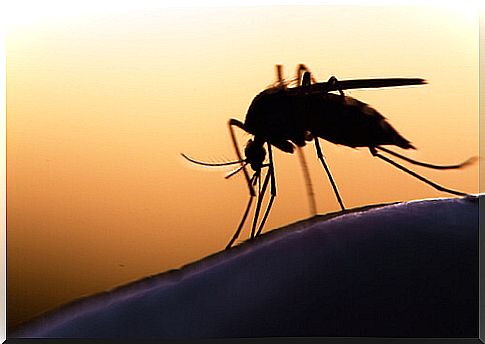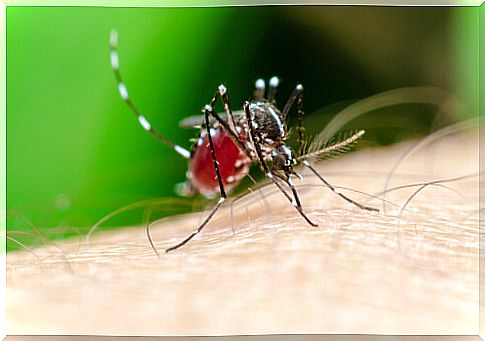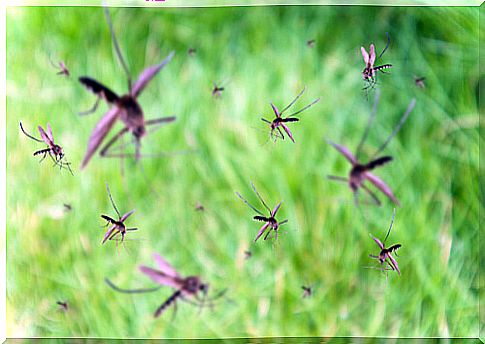7 Curiosities About Mosquitoes

Buzzing, stinging and itching are the annoying cocktail that, especially on warm nights, usually offer us small flying insects with long legs and that, in the worst case, can transmit serious diseases. Today we tell you some curiosities about mosquitoes that will surely catch your attention.
Curiosities about mosquitoes
The culícidos are a family of diptera –which have two wings– and nematocera –they have long filiform and multisegmented antennae – that are colloquially known as mosquitoes. With an elongated body and a size that, in general, does not exceed 15 millimeters, they have a life expectancy of between 10 and 15 days.
At present, there are about 3,500 species that inhabit a large part of the planet. Here are some curiosities about mosquitoes that are worth knowing.
1. They are the animals that cause the most deaths
Although most culicides are harmless to humans, some species of these insects cause around 750,000 deaths per year worldwide. And they are vectors of many dangerous diseases. Between them:
- Dengue
- Zika
- Yellow fever
- Chikungunya
- Malaria
- West Nile fever

The viruses and parasites that produce these pathologies are transmitted through the saliva of the infected mosquito and affect children and the elderly with greater force.
2. Only females bite
Mosquitoes feed on plant nectar, fruit juices, and other liquids they get from vegetables. It is only the females that bite people and other animals to suck the blood that will ensure the development of their eggs, which they will later deposit in stagnant waters.
3. They use six needles to suck blood
If you thought that to bite the mosquito you only introduce that elongated appendix that it has in its head, called a proboscis, you do not have all the information about it. It turns out that inside that tube it has six needles that fulfill different and complementary functions. Namely:
- Two of them have some species of ‘teeth’ that they use to pierce the skin.
- Two others are used as if they were tweezers to keep the skin separated.
- One of the needles is responsible for detecting the blood vessels.
- The sixth needle is the one that sucks the blood.
4. The saliva of the mosquito is what causes itching
When the female mosquito bites, she leaves traces of her saliva on the skin. This substance performs anticoagulant functions and allows you to more easily suck the blood.

It happens that most people are allergic to the saliva of this insect. This is when the immune system triggers a response that results in redness, inflammation, and itching.
5. Buzzing is caused by wings
That annoying sound so characteristic of mosquitoes, and that we often hear when we are about to fall asleep, is generated by the constant movement of their wings. The larger the specimen, the louder the buzz will be.
6. They detect the carbon dioxide we breathe out
If you wonder why mosquitoes have a predilection for buzzing around your head, the answer is that they detect the carbon dioxide that we breathe out. But they are also attracted to sweat and other smells, even those of some perfumes.
7. They contribute to the ecological balance
Among the curiosities about mosquitoes, it is worth clarifying that, beyond the buzzing, itching and diseases they transmit, like all living beings they play an important role in maintaining the natural balance. Thus, they stand out as pollinators and constitute an important source of food for birds, bats, reptiles, fish and amphibians.









